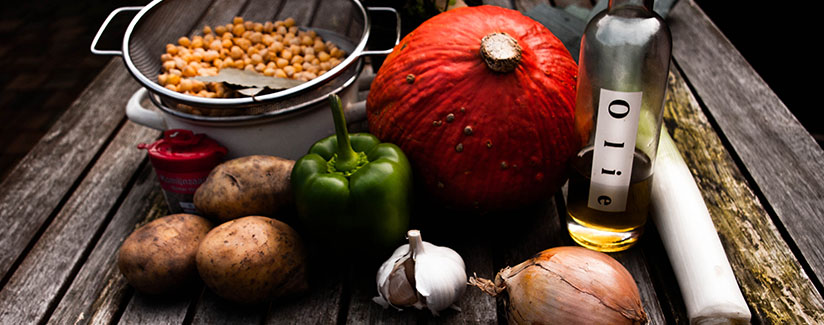
Curiosity Fuels the Future of Food
Fear of food is not healthy, and as people’s interest in food and conversations about food grow, so does unnecessary fear about what to eat and what not to eat. We reached out to Robyn Metcalfe, PhD, Executive Director of The Food Lab at the University of Texas, to gain insight on re-channeling our interest in food to curiosity that can help lead to new ideas we can all chew on.
Dr. Metcalfe on being curious:
Dr. Metcalfe:
Curiosity is a wonderful thing. We’re all born with it. It’s innate to our personalities. If you cease to be curious and cease to ask questions, you aren’t really exploring all the possibilities. The same curiosity that led me to run long distances in the desert led me to learn more about my peanut butter and jelly sandwich and the complexities of the food system. It truly is miraculous.
It’s so miraculous that the food arrives in our cities that’s healthy, fresh and meets the demand of so many different consumers. The more I learn, the deeper I appreciate the people engaged in this food system and am in awe over the complexities that allow our food to be grown and distributed to consumers each day.
Unfortunately, many people have chosen their camps and the way that they’re going to think about things, including food, and they either reinforce their opinions by seeking out others with similar beliefs or cast aspersions on the other side. That’s really damaging to the future of our food system and how it’s going to look in 2050 when we will have 9 billion mouths to feed. The really damaging aspect of our food conversation today is that too many minds are already made up and aren’t open to new solutions and possibilities.
A few examples of where people are becoming fairly entrenched in how they view the food system would be the pro-GMO camp versus the anti-GMO camp; the pro-organic movement versus the ‘maybe that’s not necessarily how we all ought to grow our food long term’ camp. There’s the pro-science and technology group and the ones who feel that science is to be distrusted. There’s the pro-industrial movement, meaning large-scale production of food, and those who think that it should all be done by small farmers in a distributed network.
The big question is, how do we create a future where we have healthy food distributed to everyone at the right price? I would say that most all of us agree on what that question is. It’s how we get there that has us stumbling into these areas of food camps and being polarized.
There are so many people right now, really smart people, in a multitude of disciplines that are doing some really good thinking about this right now. And we need to listen to them. We need to cut across our biases and really invite them into our own conversations about food. Collaboration is key to solving some challenges of our food system. You can’t do that if you’re not curious.
Take advantage of that innate curiosity and use it as a weapon against the fear of other solutions or ideas. Be curious about every single aspect of the food system, really seize your curiosity and run with it.
“My Samhain stew : Potaje de garbanzos” by Enric Martinez is licensed under CC BY 2.0.


























